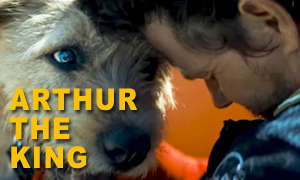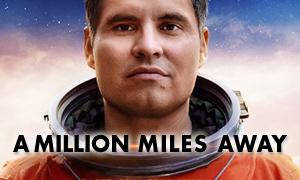The Theory of Everything: History vs. Hollywood
based on Jane Hawking's memoir, "Travelling to Infinity: My Life with Stephen"
| REEL FACE: | REAL FACE: |
Eddie Redmayne
Born: January 6, 1982 Birthplace: London, England, UK | Stephen Hawking
Born: January 8, 1942 Birthplace: Oxford, England, UK |
Felicity Jones
Born: October 17, 1983 Birthplace: Birmingham, West Midlands, England, UK | Jane Wilde
|
Charlie Cox
Born: December 15, 1982 Birthplace: London, England, UK | Jonathan Hellyer Jones
|
David Thewlis
Born: March 20, 1963 Birthplace: Blackpool, Lancashire, England, UK | Dennis Sciama
Born: November 18, 1926 Birthplace: Manchester, Lancashire, England, UK Death: December 19, 1999, Oxford, UK |
Simon McBurney
Born: August 25, 1957 Birthplace: Cambridge, Cambridgeshire, England, UK | Frank Hawking
Born: May 18, 1905 Birthplace: Yorkshire, England, UK Death: March 4, 1986, England, UK |
Abigail Cruttenden
Born: March 23, 1968 Birthplace: London, England, UK | Isobel Hawking
Born: March 3, 1915 Birthplace: Scotland, UK Death: April 6, 2013, Dorridge, Solihull, West Midlands, England, UK (old age) |
Maxine Peake
Born: July 14, 1974 Birthplace: Bolton, Lancashire, England, UK | Elaine Mason
|
Has the real Stephen Hawking seen the movie?
Yes. Following the screening of The Theory of Everything at the Toronto Film Festival in early September 2014, director James Marsh and the cast answered questions during an audience Q&A. They explained that the real Stephen Hawking had already seen the movie, saying that a nurse wiped a tear from his cheek as the lights came up at his screening. Hawking subsequently gave the filmmakers license to use the audio produced by his trademark speech synthesizer. -Variety.com
"When he watched it, he offered his own voice and it really does give the movie a lift," says screenwriter/producer Anthony McCarten. "It feels like Stephen Hawking is performing in the movie. I could never have anticipated that but it was extremely generous on his part." -Deadline.com
Does the real Stephen Hawking feel the movie is accurate?
In researching The Theory of Everything true story, we discovered that the real Stephen Hawking has conveyed his approval of the movie by calling it "broadly true" (Variety.com). "I thought Eddie Redmayne portrayed me very well," remarked Stephen. "At times, I thought he was me. ... Felicity made a very charming Jane. The film was surprisingly honest about our marriage and reflects our struggle to bring up three children, despite my disability" (The Theory of Everything Featurette).
Was Stephen Hawking's family really as normal as they are portrayed to be in the movie?
No. Though the Hawkings are portrayed to be a more or less typical family in The Theory of Everything movie, they were actually quite the opposite. The family vehicle was an old London taxi. They kept bees in their basement, and they often ate dinner in silence, with each member of the family focused on the current book they were reading (Biography.com). Stephen himself describes his family as being "considered eccentric" by outsiders. Like in the movie, Stephen's dad Frank did make homemade wine. Contrary to the film implying the wine was bad, the real Jane Hawking says it was quite good (Travelling to Infinity).
John McClenahan, a school friend of Stephen, says that the Hawking house "was a less conventional house, one in which the children had a great deal of freedom. And I remember being quite gobsmacked by the conversation over lunch. It was about subjects which were never talked about in my house - sex, homosexuality, arguments for and against abortion, and various other subjects that were quite unusual." Stephen says that in becoming a teenager, "my parents taught me to always question things and think big." -Hawking Documentary
Was Stephen Hawking really a member of the Oxford rowing team?
Yes. The Theory of Everything true story confirms that Hawking was a coxswain on the Oxford rowing team. A coxswain does not row but rather controls the stroke rate and steering. The position suited his less than athletic physique. It was during his time on the rowing team that the first signs of amyotrophic lateral sclerosis (ALS) began to show, also known as Lou Gehrig's Disease.
"As my student days were in full swing, I was gradually becoming aware that all was not well," says Stephen. "During my final year at Oxford, I had noticed that I was getting rather clumsy in my movements..." -Hawking Documentary
How did Stephen Hawking meet Jane Wilde?
Jane Wilde, Stephen's future wife, had been a literature undergraduate and a friend of his sister. They met shortly after he began his doctorate at Cambridge in 1963. It was at a New Year's party like in the movie. Though they had met, Stephen and Jane's relationship didn't take root until after he was diagnosed with motor neuron disease (ALS). The couple married in 1965. -Biography.com
"Oh, he was great fun," says Jane. "He was eccentric. I was really drawn to his very wide smile and his beautiful grey eyes, and I think that's what made me fall in love with him." -Hawking Documentary
Was Stephen Hawking diagnosed with ALS after a fall?
Not exactly. Like in the movie, Hawking was a doctoral student in 1963 Cambridge when he fell crumpled onto Trinity Hall's flagstones, which was one of at least two significant tumbles. Another fall on a train in Germany knocked out his front teeth, which had to be replaced. "...I fell over once or twice for no apparent reason," says Stephen, "but then one evening, late at night, something more serious happened." A stumble had sent Stephen's body all the way down a flight of stairs. He lost consciousness and when he woke he couldn't remember who or where he was. Yet, the incident still wasn't enough for Stephen to visit a doctor.
"When I look back at that fall, I didn't realize at the time, it was a warning sign of things to come, but I recovered and soon had more pressing things on my mind."
Later, while home from Cambridge over Christmas break, his unsteadiness on his feet, slurred speech, and other symptoms had progressed too far for him to conceal from his family, whom he didn't want to worry. His father insisted that Stephen see a doctor. His father and his sister Mary took him to the family physician, who in turn sent him to see a specialist in London. -Hawking Documentary
Did doctors really tell Stephen that he had only two years to live?
Yes. "The prognosis was not good," says Stephen. "I was given two to three years to live." This prognosis is normal for people suffering from Amyotrophic Lateral Sclerosis (also known as ALS or Lou Gehrig's disease), because most people who have ALS succumb to respiratory failure within the first three years after being diagnosed. -Hawking Documentary
How long did Stephen spend in the hospital during his diagnosis?
Stephen was diagnosed at St Bartholomew's Hospital (Barts) in London. "I was in hospital for two weeks and had a wide range of unpleasant tests," recalls Stephen. "They took a muscle sample from my arm and stuck electrodes into me, then they injected some liquid into my spine and took x-rays. Eventually, I was diagnosed with amyotrophic lateral sclerosis, otherwise known as motor neuron disease or ALS." -Hawking Documentary
Did Jane really find out that Stephen had been diagnosed with ALS from his friend, Brian?
No. In the movie, Jane learns that Stephen has motor neuron disease (also known as ALS) from his friend, Brian. In real life, Jane found out by accident from her friends, who happened to mention it. Jane and Stephen weren't dating yet. "I was stunned," says Jane. "I had only just met Stephen and for all his eccentricity I liked him." -Travelling to Infinity
What made Stephen Hawking want to continue living after his seemingly terminal diagnosis?
Hawking has said that as long as he has life, he has hope and that no matter how bleak things might seem, there is always something that a person can succeed at. In addition to deciding to embrace his time left, Hawking credits a few other things in helping him not to become completely despondent.
First, while he was still in the hospital following his diagnosis, he shared a room with a leukemia patient. Observing his roommate's situation, Hawking believed that his own was more tolerable. Second, shortly after he was discharged from the hospital, he had a nightmare that he was going to be executed. It helped him to realize the things he still wanted to do with his life.
Of course, the most significant motivation for wanting to continue living was Jane Wilde, the young languages undergraduate with whom Stephen Hawking was falling in love and would eventually marry in 1965. "Falling in love gave me something to live for," Stephen said in the 2013 documentary Hawking. "Jane was beautiful and gentle, and seemingly undaunted by the harsh reality of my illness."
"I was bored with life before my illness," he said. "There had not seemed to be anything worth doing." It wasn't until he was faced with the realization that his life could end before he got his Ph.D. that he put much more effort into his work and research. Stephen also credits his desire to provide for Jane as a motivating factor to get his Ph.D. -Biography.com
Did Jane Wilde enter the marriage believing that she would quickly become a widow?
"Yes, but at that stage I did not want to think about that," says Jane. "Also, we had this very strong sense at the time that our generation lived anyway under this most awful nuclear cloud - that with a four-minute warning the world itself could likely end. That made us feel above all that we had to do our bit, that we had to follow an idealistic course in life. That may seem naive now, but that was exactly the spirit in which Stephen and I set out in the Sixties - to make the most of whatever gifts were given to us." -The Observer
Where does "The Theory of Everything" title come from?
The true story behind The Theory of Everything reveals that the movie's title refers to Hawking's tireless search to find a single universal equation for all existence. More specifically, it is a theory in physics that unites the four fundamental forces of nature: the strong force, the weak force, gravity and the electromagnetic force.
Physicist Sir Roger Penrose came up with the theory that when a star collapses under the force of its own gravity, it would collapse to a singular point of infinite density where time itself would come to a stop. Penrose called it a singularity, the heart of a black hole. "I worked relentlessly to see if I could apply the notion of a singularity to the entire universe," says Stephen. Then Hawking realized that by rewinding time, he could take the universe back to a singularity as well. "Here, time stops. You've reached the true beginning of everything. There is no previous time in which the universe could have had a cause. It spontaneously created itself in the Big Bang."
"I had controversially shown the laws of nature suggest there is no need for a creator or God. The universe just came into existence all by itself." -Hawking Documentary
How soon after his diagnosis was Stephen Hawking confined to a wheelchair?
Although the effects of his disease had begun to slow down, by 1969 his physical control over his body had been reduced to the point that he needed a wheelchair. This was roughly six years after his diagnosis, and it was a fate that he accepted reluctantly. -Biography.com
"One of the great battles was getting Stephen to use a wheelchair," says his former wife Jane. "I'd be going out with Stephen on one arm, carrying the baby in the other, and the toddler running alongside. Well it was hopeless because the toddler would run off and I would be unable to chase. So that kind of thing made life rather impossible." -The Observer
Did Stephen's parents really buy a country cottage that wasn't wheelchair friendly?
Yes. Like in the movie, Stephen's parents bought a country cottage and invited Stephen and Jane for a visit. They failed to warn them about the hill and challenging set of stairs. "I was upset and baffled," Jane wrote in her memoir of the visit. "It seemed that the Hawkings considered themselves free of all basic responsibility for Stephen."
Did Stephen's mother ask Jane which man was the father of their third son, Timothy?
Yes, curious if Jonathan Hellyer Jones was the father, Isobel Hawking, Stephen's mother, flat-out asked Jane which man was the father. Unlike the movie, it didn't happen at a party to celebrate Timothy's birth. It happened when Jane and Isobel were alone with the baby. Jane told her it could only be Stephen's, but Isobel didn't hesitate to express her true feelings. "We have never really liked you," she told Jane. "You do not fit into our family." -Traveling to Infinity
What is "Hawking Radiation"?
Hawking Radiation was discovered by Stephen Hawking in 1974 and was reluctantly accepted by the physics world. Contrary to all previous theories on black holes, Hawking discovered that black holes must emit particles like a hot body losing heat. "This evaporation meant in theory a black hole could eventually disappear," says Stephen. -Hawking Documentary
To what degree was physical intimacy a part of Stephen and Jane Hawking's marriage?
One thing that the movie doesn't examine is the challenge of physical intimacy given Stephen Hawking's deteriorating condition. Though the filmmakers might have considered it inappropriate to depict onscreen, Jane Hawking discusses the matter in her book Travelling to Infinity: My Life with Stephen, which provided the basis for the movie. Jane described the absence of physical intimacy with Stephen as "a deep hole in my own life" that she had no one to talk to about.
In 1976, Jane's friend Thelma Thatcher brought up the subject to Jane by saying, "I simply can't imagine how you survive without a proper sex life."
"I myself did not know the answer to her question," writes Jane, "but my sense of loyalty to Stephen forbade any open discussion of that topic, which for him was as taboo a subject as his illness."
Did Jane Hawking really offer free room-and-board at their home to students who would help care for her husband?
Yes. According to The Theory of Everything true story, this began in 1974 with the Ph.D. students who traveled to the U.S. with Stephen and his family during his one-year stint as a guest lecturer at Caltech. It continued upon Stephen's return to Cambridge. The trip is not included in the movie. Although, we do see students taking him to the opera.
Jane had been raising three children in addition to caring for her husband. "I had two tiny babies," says Jane. "I was running the home and looking after Stephen full time: dressing, bathing, and he refused to have any help with that other than from me" (The Observer).
When did Stephen Hawking lose the use of his voice?
In the mid-1970s, Stephen Hawking's speech had become slurred to the point that only those who spent a considerable amount of time with him could understand him. In 1985, he underwent a tracheotomy as part of his treatment for the pneumonia that nearly claimed his life. Instead, the procedure claimed what was left of his voice. A California computer programmer named Walt Woltosz took notice of his situation and introduced Hawking to speaking software that he had developed, which could be directed by eye or head movement.
At first, Hawking, who still had use of his fingers, interacted with the program via a clicker. Today, Hawking directs the program via a sensor attached to a cheek muscle. -Biography.com
Was Jane really camping with Jonathan when she found out Stephen was put on life support?
Yes. This part of the movie is mostly in line with the true story. Stephen and Jane often took separate trips. Jane was camping with Jonathan Hellyer Jones and the kids when Stephen's coughing fits worsened. Unlike the movie, Stephen was not at the opera. He was taken to a hospital in Geneva, Switzerland and was diagnosed with pneumonia. He ended up on life support. Jane, Jonathan and the kids had actually planned on meeting Stephen in Geneva all along, where they were going to go to the opera together. Upon learning what had happened, Jane hurried to the hospital in Geneva to be at his side. -Travelling to Infinity
Did Stephen Hawking nearly die from pneumonia?
Yes. A 1985 battle with pneumonia left Stephen Hawking on life support. Stephen's wife Jane refused to disconnect him. "Slowly the drugs worked," says Stephen, "though a small incision in my throat robbed me of my ability to talk." He recovered, but the family subsequently enlisted 24-hour nursing at home. -Daily Mail Online
Did Stephen Hawking ever acknowledge his illness?
No. "All along I suppose I tried to imagine his feelings," says former wife Jane Hawking, "because he would never ever talk about how he felt - he would never mention his illness. It was as if it did not exist" (The Observer). Stephen's sister Mary also felt that he never accepted his condition emotionally, pointing out that he never discussed it with her or his parents either (Hawking Documentary).
How long were Stephen and Jane Hawking married?
The real Stephen and Jane Hawking were married for approximately thirty years, from 1965 to 1995 (Hawking left Jane for his nurse, Elaine Mason, in 1990, with the divorce not becoming official until 1995). Stephen and Jane share three children together: Robert, Lucy and Timothy.
In speaking about the 2004 BBC Hawking TV movie starring Benedict Cumberbatch, Jane said, "That is what should be most important about the film. That sense we had that, despite it all, everything was going to be possible. That Stephen was going to do his physics, and we were going to raise a wonderful family and have a nice house and live happily every after." -The Observer
Why did Stephen and Jane Hawking divorce?
Stephen's wife says that her husband's disease "forced us into our own little black hole." For a long time, Stephen was averse to outside help and relied on Jane for his care, while at the same time Jane was raising their three children. In later years, Stephen said that he "was never able to understand the strain it put on Jane."
In Stephen Hawking's memoir My Brief History, he describes his wife installing the choirmaster, Jonathan Hellyer Jones, in their apartment following the birth of their third child in 1979. Hawking implies that his wife was prepping a new husband since no one expected Hawking to live much longer. However, after making it to 1990, Hawking had grown upset over his wife's closeness to Jones. Frustrated, Hawking moved into another house with the nurse who would become his second wife, Elaine Mason.
In the end, it's apparent that it wasn't just Stephen Hawking's disease that put a strain on his marriage to Jane. After publishing A Brief History of Time, the book's runaway success went to Stephen's head, at least according to Jane, who believed that her marriage was "engulfed and swept away by the great wave of fame and fortune," with her husband behaving like "an all-powerful emperor."
To make matters worse, Stephen's leanings toward atheism intensified, something he investigated further in his book The Grand Design. Jane, whose Catholic beliefs had helped her through the toughest aspects of her husband's disease, was now watching her husband attempt to scientifically disprove her faith. -Biography.com
Did Stephen Hawking leave his wife Jane for his nurse?
Yes. Stephen Hawking left his wife Jane Hawking in 1990 for one of his nurses, Elaine Mason. Stephen married Elaine in 1995, but suspicion of abuse shrouded the relationship in controversy. A former employee referred to Elaine as "controlling, manipulative and bullying." Rumors of violence and abuse were supported by Stephen's children. The pair divorced in 2006, but Stephen dismisses the allegations of abuse. Instead, he describes his marriage to Elaine as "passionate and tempestuous." -Daily Mail Online
Did Jane Hawking really marry her choirmaster?
Yes, but the two didn't meet like they do in the movie. They did meet through singing, but it was during a caroling excursion, not at the church. Like in the movie, Jonathan Hellyer Jones, portrayed by Charlie Cox, became a long-time friend of the family. After Stephen and Jane's divorce was finalized in 1995, Jane married Jonathan Hellyer Jones in 1997. Jane discovered new happiness with Jonathan and their relationship flourished. "Without Jonathan, I would have gone under," Jane wrote in her first book, Music to Move the Stars. "I would have been at the bottom of the river or in a mental institution." -The Observer
Did actor Eddie Redmayne meet Stephen Hawking?
Yes. After spending six months researching the astrophysicist's life, actor Eddie Redmayne had the chance to meet the real Stephen Hawking five days before filming began. Redmayne was so nervous that he began telling Hawking biographical details about Hawking's own life, informing him that they were both Capricorns. Hawking replied, "I'm an astronomer, not an astrologer." -Variety.com
Did actress Felicity Jones have the approval of Jane Hawking?
Yes. Actress Felicity Jones met with Stephen Hawking's former wife, Jane Hawking, who cooked her dinner and showed her slides from when she and Stephen first met. When Felicity was leaving, Jane told her that she completely trusted her. Later, after the movie was finished and Jane had seen it, she was very complimentary about it (EW.com). "When I saw Felicity on the screen, I thought, oh my goodness, that's me," says Jane, "because she had captured my mannerisms" (The Theory of Everything Featurette).
Did Jane Hawking really write a less flattering memoir in addition to the one the movie was based on?
Yes. Jane Hawking's first memoir, Music to Move the Stars, was published in 1999 and offers a more dismal account of the breakdown of her marriage to Stephen Hawking. It provided part of the basis for the 2004 BBC TV movie Hawking starring Benedict Cumberbatch. The filmmakers behind The Theory of Everything chose to instead base the movie on her second memoir, Travelling to Infinity: My Life with Stephen (2007), which focuses on the more positive sides of their relationship.
Is it true that Stephen Hawking plans to go into space?
Yes. Stephen Hawking is already scheduled to fly to the edge of space, having been invited as one of Sir Richard Branson's pioneer Virgin Galactic space tourists. In 2007 at age 65, Hawking first experienced weightlessness on board a modified Boeing 727, which took off from the Kennedy Space Center and spent two hours over the Atlantic. "It was a moment that temporarily stripped me of my disability," says Hawking, "a feeling of true freedom." -Hawking Documentary
What do Stephen Hawking's children think of the movie?
Actor Eddie Redmayne befriended Stephen Hawking's children, most notably his youngest, Tim. Though the media reported positively about the film following the Toronto Film Festival screening, it was the family's approval that Redmayne was seeking the most. "Tim wrote a lovely text message the other day," says Redmayne, "in which he described how [he and his sister Lucy] were watching the movie, and at the end, when Stephen gets up, they both said the fact that they could see, for a second, what their father may have looked like able-bodied was incredibly moving for them. And in turn, very moving for me." -EW.com
Is Stephen Hawking's disease the same one associated with "the ice bucket challenge"?
Yes. In 2014, the fundraising effort known as "the ice bucket challenge" went viral as people began posting videos to the internet of themselves dumping buckets of ice on their heads. After performing the chilling feat, each person nominated three others to accept the challenge. By the end of August 2014, the fundraising phenomena had raised more than $100 million for ALS research. -Forbes.com
"It wouldn't have been very safe for me to have done the ice bucket challenge," said Hawking on his Facebook page, "but that is why I have three beautiful children who could take the plunge for me." Watch Stephen's children take the ice bucket challenge.
Stephen Hawking Interviews and Related Videos
Further explore The Theory of Everything true story below via videos that include Stephen Hawking interviews, a short biography, his TED Talks speech and his ALS Ice Bucket Challenge.
WATCH Stephen Hawking ALS Ice Bucket ChallengeStephen Hawking's children, Lucy, Robert
and Tim, accept the ALS Ice Bucket
Challenge in 2014 on his behalf. Hawking
introduces the video, stating that a 2013
bout with pneumonia would make it unwise
for him to have a bucket of ice water
dumped on his head. |
WATCH Stephen Hawking Interview on Last Week Tonight with John OliverThis Stephen Hawking interview is from
HBO's Last Week Tonight with John
Oliver. Host Oliver interviews
Hawking as part of the first installment
of Last Week Tonight's "People
Who Think Good" series. Oliver visits
Hawking at Cambridge where they discuss
parallel universes, artificial
intelligence, and Charlize Theron. |
WATCH Stephen Hawking TED Talks Speech: Questioning the UniverseProfessor Stephen Hawking is featured as
part of the TED Talks series. In this 2008
video, he addresses several big questions
about our universe. How did the universe
begin? How did life begin? Does alien life
exist? Hawking says that in order to
survive as a race we must journey into
space, as one day Earth's resources will
be depleted. |
WATCH Stephen Hawking BiographyThe BIO Channel presents a mini Stephen
Hawking biography video. Learn about his
childhood, his theory on black holes,
living with ALS, and his bestselling
science book A Brief History of
Time. Hawking's most important work
is discussed, including his chief theory
that black holes should emit radiation,
which came to be known as Hawking
Radiation. |
WATCH Stephen Hawking, Carl Sagan and Arthur C. Clarke InterviewThis 1988 interview features physicist
Stephen Hawking, science fiction author
Arthur C. Clarke, and astronomer Carl
Sagan discussing the Big Bang Theory, God,
human existence, and the possibility of
alien life. |
WATCH The Theory of Everything TrailerThe Theory of Everything tells
the story of the most celebrated physicist
of our time, Stephen Hawking, and his wife
Jane Wilde, the arts student he fell in
love with when he was attending Cambridge
in the 1960s. At 21, Hawking was diagnosed
with motor neuron disease, otherwise known
as ALS (amyotrophic lateral sclerosis) or
Lou Gehrig's disease, and was given just
two years to live. He married Jane, beat
the odds, and went on to be referred to as
the successor to Einstein, in addition to
being the father of three children. |
WATCH The Theory of Everything Trailer 2Starring Eddie Redmayne (Les
Misérables) and Felicity Jones
(The Amazing Spider-Man 2),
The Theory of Everything tells
the story of renowned astrophysicist
Stephen Hawking, exploring his
relationship and marriage to fellow
Cambridge student Jane Wilde and his
struggle with Lou Gehrig's disease. He was
diagnosed with motor neuron disease when
he was 21. |
Link-to-Learn More:
- Stephen Hawking's Official Facebook Page
- The Theory of Everything Official Website at Focus Features







